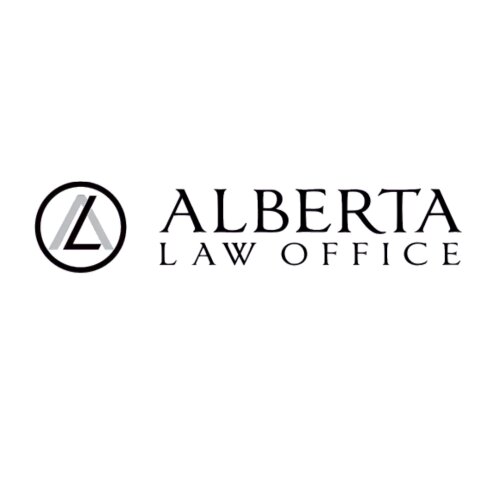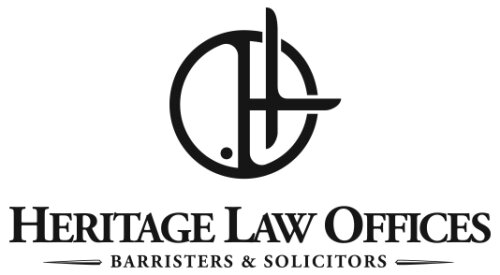Best Collaborative Law Lawyers in Edmonton
Share your needs with us, get contacted by law firms.
Free. Takes 2 min.
Free Guide to Hiring a Family Lawyer
List of the best lawyers in Edmonton, Canada
About Collaborative Law in Edmonton, Canada
Collaborative Law in Edmonton, Canada is a legal process that focuses on resolving disputes outside of court. It involves both parties and their respective lawyers working together to reach a mutually acceptable agreement. This approach promotes open communication, respect, and cooperation in finding solutions to conflicts.
Why You May Need a Lawyer
You may need a lawyer in Collaborative Law situations when you are facing a family issue such as divorce, child custody, or property division. Lawyers can provide legal advice, negotiate on your behalf, and ensure that your rights are protected throughout the collaborative process.
Local Laws Overview
In Edmonton, Canada, Collaborative Law operates under the Alberta Rules of Court and the Collaborative Law Participation Agreement. These laws outline the guidelines and requirements for participating in a collaborative process, including the commitment to open communication, honesty, and working towards a mutually beneficial solution.
Frequently Asked Questions
1. What is Collaborative Law?
Collaborative Law is a process where both parties work with their lawyers to reach a settlement without going to court.
2. How is Collaborative Law different from mediation?
In a collaborative process, both parties have their lawyers present throughout the negotiations, whereas in mediation, a neutral third party facilitates the discussions.
3. What are the benefits of Collaborative Law?
Some of the benefits include a faster resolution, lower costs, reduced conflict, and a more customized outcome that meets the parties' needs.
4. Can I still go to court if the collaborative process fails?
If the collaborative process fails to reach a settlement, both parties must hire new legal representation if they choose to proceed to court.
5. How long does a typical Collaborative Law process take?
The length of the process varies depending on the complexity of the issues involved and the willingness of both parties to cooperate. On average, it can take several months to a year.
6. Is Collaborative Law confidential?
Yes, discussions and negotiations within the collaborative process are confidential and cannot be used in court if the process fails.
7. What happens if one party is not honest in the Collaborative Law process?
If one party is dishonest or withholds information, it can undermine trust and the effectiveness of the process. It is essential for all parties to be transparent and truthful throughout the negotiations.
8. How do I find a Collaborative Law lawyer in Edmonton?
You can search for lawyers specializing in Collaborative Law through legal directories, referrals from other professionals, or by contacting local law firms directly.
9. What are the costs associated with Collaborative Law in Edmonton?
The costs of Collaborative Law include legal fees, meeting expenses, and any other professional services needed to facilitate the process. It is essential to discuss fees and payment arrangements with your lawyer upfront.
10. Can I use Collaborative Law for any legal dispute?
Collaborative Law is commonly used for family law matters such as divorce, child custody, and support issues. It may not be suitable for all types of disputes, so it is best to consult with a lawyer to determine if it is the right approach for your situation.
Additional Resources
For more information on Collaborative Law in Edmonton, Canada, you can visit the Collaborative Divorce Alberta website or contact the Alberta Family Mediation Society for guidance and support.
Next Steps
If you are considering Collaborative Law for your legal issue in Edmonton, Canada, the first step is to schedule a consultation with a qualified Collaborative Law lawyer. During this initial meeting, you can discuss your concerns, goals, and determine if the collaborative process is the right approach for your situation.
Lawzana helps you find the best lawyers and law firms in Edmonton through a curated and pre-screened list of qualified legal professionals. Our platform offers rankings and detailed profiles of attorneys and law firms, allowing you to compare based on practice areas, including Collaborative Law, experience, and client feedback.
Each profile includes a description of the firm's areas of practice, client reviews, team members and partners, year of establishment, spoken languages, office locations, contact information, social media presence, and any published articles or resources. Most firms on our platform speak English and are experienced in both local and international legal matters.
Get a quote from top-rated law firms in Edmonton, Canada — quickly, securely, and without unnecessary hassle.
Disclaimer:
The information provided on this page is for general informational purposes only and does not constitute legal advice. While we strive to ensure the accuracy and relevance of the content, legal information may change over time, and interpretations of the law can vary. You should always consult with a qualified legal professional for advice specific to your situation.
We disclaim all liability for actions taken or not taken based on the content of this page. If you believe any information is incorrect or outdated, please contact us, and we will review and update it where appropriate.









